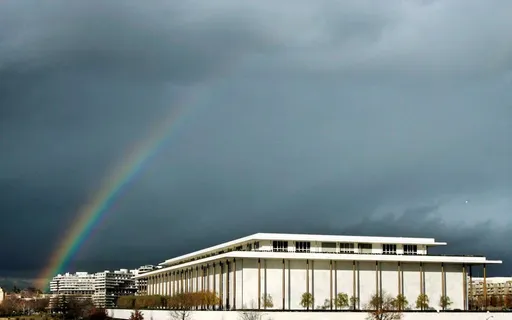Whatever little credibility the US claimed to have as an arbiter of the vexed Israel-Palestine dispute, the Trump administration has ripped it apart at the seams through a series of controversial decisions in the past few years.
The latest addition to Washington's reckless diplomacy came in the form of Secretary of State Mike Pompeo's snub to the UN report on Israeli companies with direct links to illegal Jewish settlements in occupied Palestinian territories.
The UN's extensive report exposes a list of companies that are extracting profits from the illegal Jewish settlements, including the US-based TripAdvisor and Airbnb and the British truck and digger maker JCB.
Although the UN maintained the report would have no legal consequences on the companies involved in the illicit trade on occupied lands, it still infuriated Pompeo, who accused it of being "anti-Israeli".
“The US has not and will never provide any information to support the compilation of these lists,” Pompeo said on Twitter.
Palestinian leadership has already cut off political contact with the Trump administration and two-thirds of Palestininans oppose the idea of resuming bi-lateral contact with the US government.
The blatant pro-Zionist policymaking that came from the Trump administration in recent years — from slashing humanitarian aid to Palestinian refugees to unilaterally recognising the city of Jerusalem as Israel’s capital— have further complicated the conflict.
Here are the three most controversial decisions the US took under the command of President Donald Trump since 2016, shredding apart the facade of neutrality Washington strived to put forth before the international community.
Moving the US embassy to Jerusalem
Trump moved the US embassy from Tel Aviv to Jerusalem in May 2018 amid heavy criticism by world public opinion.
By unilaterally recognising Jerusalem as “the capital” of Israel, the US sparked protests in the region where Israeli forces violently intervened Palestinians.
By just agreeing with Israeli claims over Jerusalem, the US totally ignored Palestinians right in east Jerusalem.
Trump's recognition of contested Jerusalem as Israel's capital in December outraged Palestinians, who said the United States could no longer serve as an honest broker in any peace process with Israel.
Israel captured the city in the 1967 Middle East war and annexed, as its "eternal and indivisible capital" in a move that has not won international recognition.
Most countries say the status of Jerusalem - a sacred city to Jews, Muslims and Christians - should be determined in a final peace settlement and that moving their embassies now would prejudge any such deal. Peace talks aimed a finding a two-state solution to the conflict have been frozen since 2014.
Trump’s ‘peace plan’
Trump’s so-called “deal of the century” proposals has been controversial over the last two years.
The plan proposes Palestinians accept the Israeli annexation half of the West Bank including most of the Jordan Valley, the strategic and fertile easternmost strip of the territory.
Jordan Valley is vital for Palestinians for being the breadbasket of the West Bank and Palestine border with Jordan.
The US just offered a $50 billion investment fund for Palestine and other Arab countries in return accepting Israeli sovereignty over disputed lands.
The plan proposes setting up a Palestinian capital in the urban sprawl to the north and east of a concrete wall that Israel built through East Jerusalem more than a decade ago.
However, Palestinian President Mahmud Abbas rejected the plan at the UN Security Council by describing the plan as "Swiss cheese" deal that would limit Palestinian sovereignty without bringing lasting peace.
Turkey called it an “annexation plan” which was aimed at usurping Palestinian lands and killing the two-state solution.
The UN announced it will remain committed to a two-state solution based on the borders in place before the 1967 war when Israel seized the West Bank and Gaza.
Occupier Jewish settlements
Despite violating international law and going against public opinion, Israel continues to occupy West Bank and East Jerusalem and is using settlers to fortify its hold on illegally occupied territories.
According to the Associated Press, Jewish settlement construction in Israeli-annexed east Jerusalem has spiked since Trump took office in 2017.
Pompeo announced the US backed Israel's right to build illegal Jewish-settlements in the occupied West Bank, which has been condemned by many countries.
According to the Fourth Geneva Convention, an occupying power cannot transfer its civilian population to territories under its control.
Around 600,000 Jewish settlers, 200,000 in East Jerusalem and 400,000 in the West Bank, live beyond the Zionist state's 1967 borders.
























